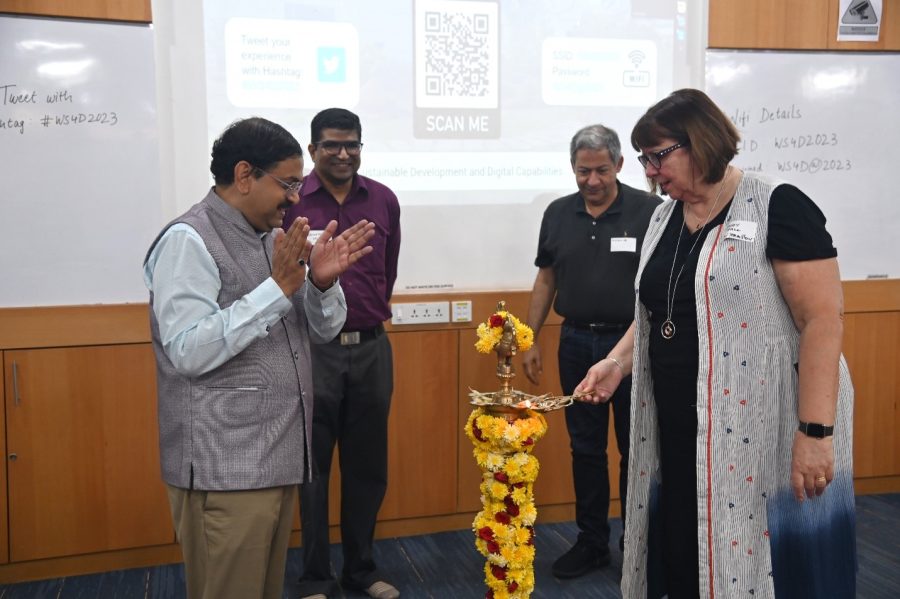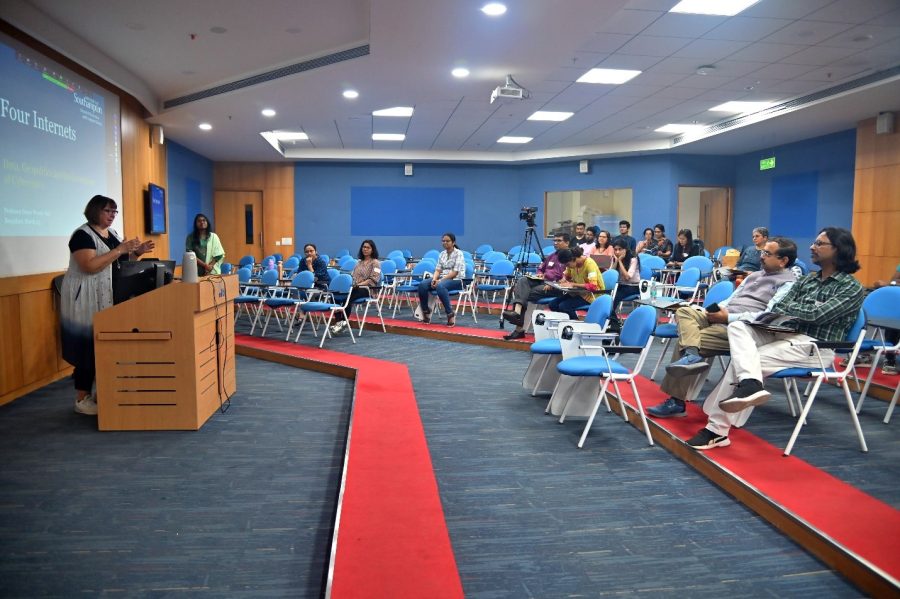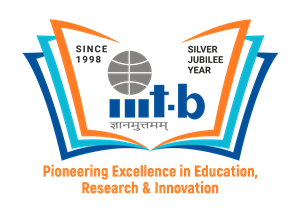
Web science is the interdisciplinary field that studies the World Wide Web, its users, and its impact on society. In the current scenario, the relevance of web science is significant because the web has become an integral part of our daily lives, and its impact is only increasing. As a part of web science research initiative at IIIT Bangalore, a workshop on the Web Science for Development (WS4D) was started in 2019. This annual workshop brings in together professionals from several domains, addressing different thematic concerns pertaining to the use of web and mobile technologies in developmental efforts.
WS4D 2023 workshop which was held from March 17-18 at IIIT Bangalore was themed around ‘Sustainable Development and Digital Capabilities’.
Prof. Srinath Srinivasa, Dean (R&D), IIIT Bangalore who has pioneered the WS4D workshop said, “The World Wide Web (WWW) is the biggest information construct that the world has ever seen. Nothing like the web ever existed in recorded human history. The web is neither a natural phenomenon, nor is it an artificially engineered system. It is the result of trillions of human decisions made independently. As the web and associated technologies like mobile computing make inroads into most aspects of our lives, there is a growing urgency to understand how it is affecting humanity as a whole. This triggered the interdisciplinary study of Web Science.”

On the first day, taking the stage, Prof. Dame Wendy Hall, Executive Director of the Web Science Institute at the University of Southampton gave a keynote address and spoke on ‘Four internets: data, geopolitics and the governance cyberspace. She pointed out that we realized our dependency on Internet during the Covid-19 pandemic. Also, when the whole world piled onto the Internet in order to do anything during the lockdowns, it stayed up and running which is a huge testament to the foresight of the Internet pioneers in terms of its design and in built resilience and scalability. Dr. Archisman Majumdar, Assistant Vice President and Lead for Applied AI at Mphasis Next Labs spoke on ‘‘The Applications of Generative AI-ITindustry perspectives’.
The human mind is known to be a “story engine” where it interprets and operates within the framework of mental constructs called narratives. Prof. Srinath Srinivasa, who spoke on ‘Preserving Narrative Diversity on the Web’ said that the web has added a new dimension to how narratives are diffused and consumed in social settings. What will it take for democratic innovation and data science/AI to positively reinforce one another? by prof. Matt Ryan, Associate Professor in Governance and Public Policy, University of Southampton. There was a combined presentation by Prof. Janaki Srinivasan, IIITB and Ms. Sudha Nagavarapu, Sangtin Kisan Mazdoor Sangathan (SKMS) on ‘Recovering Food Narratives and Reimagining Health’. They highlighted on digital documentation of cultural practices around food, farming, dietary transitions and nutrition in Western Avadh in Uttar Pradesh. Dr. Vinay Reddy, from CIET at IIITB spoke on ‘Smart City IoT Systems and Ethics’.
Day 2 began with a keynote address by Prof. Noshir Contractor, Jane S. & William J. White Professor of Behavioural Sciences (McCormick, SoC, Kellogg). His topic was a topic, ‘People Analytics: Using Digital Exhaust From The Web To Leverage Network Insights In The Algorithmically Infused Workplace’. “Organizations need to do more than analyze data on demographic attributes to bring the performance of people analytics in the algorithmically infused workplace up — and in line with the hype. We need to focus not only on who people are but also on who they know. The potential for social network analysis to identify “high potentials,” who has good ideas, who is influential, and what teams will get work done efficiently and effectively is well established based on decades of research,” he said.
Prof. Noshir’s talk was followed by Prof. Balaraman Ravindran, IIT Madras, who spoke on ‘Are Models Trained on Indian Legal Data Fair?’ A researcher scholars’ colloquium had participation from Paramita Das, Meera Muthukrishnan, Apurva Kulkarni, Pooja Bassin and Jayati Deshmukh from IIITB.
WS4D was concluded with a panel discussion by Prof. Wendy Hall, Prof. Noshir, TB Dinesh, Prof. Bidisha Chaudhuri, IIITB discussing on ‘Characterzing the Swing State of the Internet’ which was moderated by Prof. Srinath.
WS4D 2023 workshop garnered more participants from the industry followed by the academia. In conclusion, the WS4D 2023 workshop brought in different perspectives surrounding AI, Web and other technologies and their impact on humanity. We believe the exposure to such interdisciplinary work would intrigue and enrich our participants’ view about the World Wide Web and India’s place in the ‘Swing State of the Internet’.


